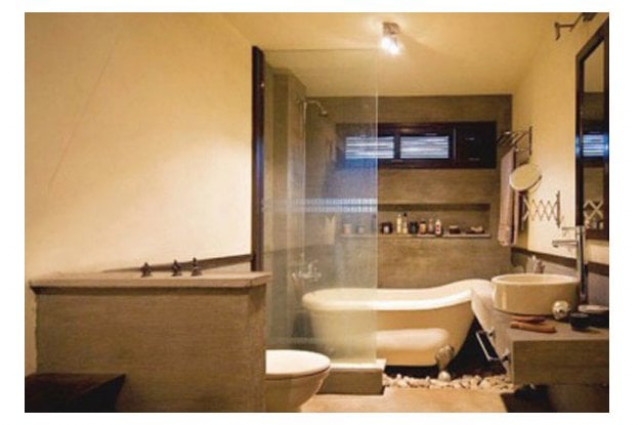Ceramic industry: Turkish brand Kale opens flagship store
Europe’s third largest ceramic exporter also plans to establish manufacturing facilities

Europe’s third largest ceramic exporter also plans to establish manufacturing facilities. PHOTO: FILE
The growth in Pakistan’s construction sector has reached a level where it is attracting high-end foreign brands dealing with ceramic tiles, bathroom furniture and fixtures.
Kale Group - a leading Turkish Industrial giant with a diverse portfolio - has just entered the Pakistani market to capitalise on the potential by opening a ‘seven story’ flagship store in Lahore.
Johnny Rockets shuts down flagship store as heat rises
In Pakistan, ceramic products are imported from Italy and Spain for the niche market. Kale Group too, is importing products from Turkey.
“This part of the world needs quality products and we have the expertise to meet the requirements of Pakistan’s ceramic industry,” said Kale Group President Zaynep Bodur Okyay, while talking to journalists.
“We think Pakistan is a lucrative market for construction materials, warranting the establishment of a few state-of-the-art manufacturing facilities. We have that on the cards but first we need to see the market response.
Keeping up with fast fashion
“We want to assess the market through our Pakistani dealer before we take a decision on establishing such a facility,” she added.
The group has join hands with a local counterpart, El Nafey Group, to begin operations in Pakistan.
Kale (Kaleseramil) is the third largest producer of tiles and bathroom ware in Europe and has plants in Russia, Italy and Turkey.
The company is Turkey’s top ceramics manufacturer and exporter and Europe’s third largest exporter to over 100 countries, earning revenues in excess of $100 million per year.
The group as a whole comprises of 17 different companies with an annual turnover of $1.1 billion.
“The initial response of Turkish construction products is very encouraging,” said Okyay. “We already have orders from Packages Shopping Malls, Nishat Emporium and Coca Cola.
The price of indifference
“Currently, the tiles and bathroom market is divided into three segments; high-end buyers go for Italian and Spanish products, the middle segment prefers Chinese products that are relatively cheap while local products are used by the lower segment of society,” she noted.
She claimed that Kale products, in terms of quality, were at par with Italian and Spanish brands but were 40% cheaper.
“The Chinese products are imported at very low-duty due to the Free Trade Agreement (FTA) between Pakistan and China. At the same duty, we may be at par with the Chinese,” she said, adding that if Kale established a plant in Pakistan, its products would be extremely competitive.
“Duty tariffs and logistics make the product much more costly which is why one has to be local in order to be price competitive; our idea is to create the brand image first before going for the next big step”, she remarked.
Published in The Express Tribune, January 9th, 2016.
Like Business on Facebook, follow @TribuneBiz on Twitter to stay informed and join in the conversation.



















COMMENTS
Comments are moderated and generally will be posted if they are on-topic and not abusive.
For more information, please see our Comments FAQ